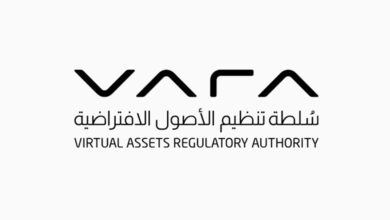Bitcoin Faces Data Blackout as U.S. Congress Reignites Crypto Regulation Efforts

The crypto sector finds itself navigating dual-front pressures: a blackout in U.S. jobs and inflation data that is clouding macro outlooks for assets such as Bitcoin, and a surge in U.S. Congressional regulatory activity that could reshape oversight of digital assets.
Data Void Adds Volatility to Crypto Trades
According to a report by Decrypt Media, the U.S. government shutdown disrupted the release of October’s inflation and employment figures, leaving traders “flying blind” when assessing policy direction.
With major data missing, markets are recalibrating: the probability of a December rate cut by the Federal Reserve has dropped significantly.
For Bitcoin and broader crypto assets, which are increasingly treated as macro-sensitive, this means heightened uncertainty. “In a data-vacuum environment, the primary impact on macro-sensitive assets such as Bitcoin is a sharp rise in uncertainty, which naturally increases volatility,” said one crypto researcher. As a result, Bitcoin extended its recent slide, with prediction markets lowering odds of a short-term rally.
Without clear economic data, crypto traders may lean more on sentiment and momentum rather than fundamentals. That increases the risk of abrupt reversals in crypto prices, especially in a backdrop of global regulatory shifts.
U.S. Congress Re-engages With Crypto Regulation
At the same time, the U.S. legislative and regulatory environment for digital assets is heating up. The United States House of Representatives approved a short-term funding bill to reopen the government after a record-setting shutdown, and in doing so, enabled federal regulators to resume work on crypto-related rule-making.
The restart is particularly relevant for the U.S. Securities and Exchange Commission (SEC) and the Commodity Futures Trading Commission (CFTC), both of which had staff furloughed during the shutdown. Their ability to advance crypto policy and review token-linked products will now accelerate.
Additionally, the United States Senate Agriculture Committee published an early draft of market-structure legislation targeting oversight of spot crypto markets and the role of the CFTC.
Regulatory clarity is one of the crypto industry’s major bottlenecks. With Congress and regulators back in motion, crypto firms waiting on approvals — for listings, ETFs or token projects — may see movement sooner. But it also raises the prospect of tighter rules, meaning compliance risks could increase.
What Crypto Participants Should Watch
The crypto market today is sandwiched between macro ambiguity and regulatory acceleration. On one side, missing U.S. inflation and jobs data are injecting uncertainty into market expectations, especially for assets like Bitcoin that increasingly respond to macro cues. On the other, U.S. Congress and regulators are back in business, suggesting crypto oversight and structural reforms are on the horizon.
Traders and investors must now monitor market sentiment closely, as unexpected Fed moves or inflation updates could trigger sharp price swings. At the same time, upcoming SEC and CFTC rule-making may create both opportunities and risks for firms building products or funds around digital assets. With the U.S. tightening oversight, and other jurisdictions such as the UAE, EU, and Asia moving at different paces, crypto participants must remain globally aware and vigilant to navigate both regulatory and economic developments effectively.
For participants in the crypto ecosystem — from investors to token issuers to service providers — this moment demands vigilance. Clarity may be near on the regulatory front but ambiguity remains high on the economic front. Navigating both effectively will differentiate those who thrive from those caught off-guard.





